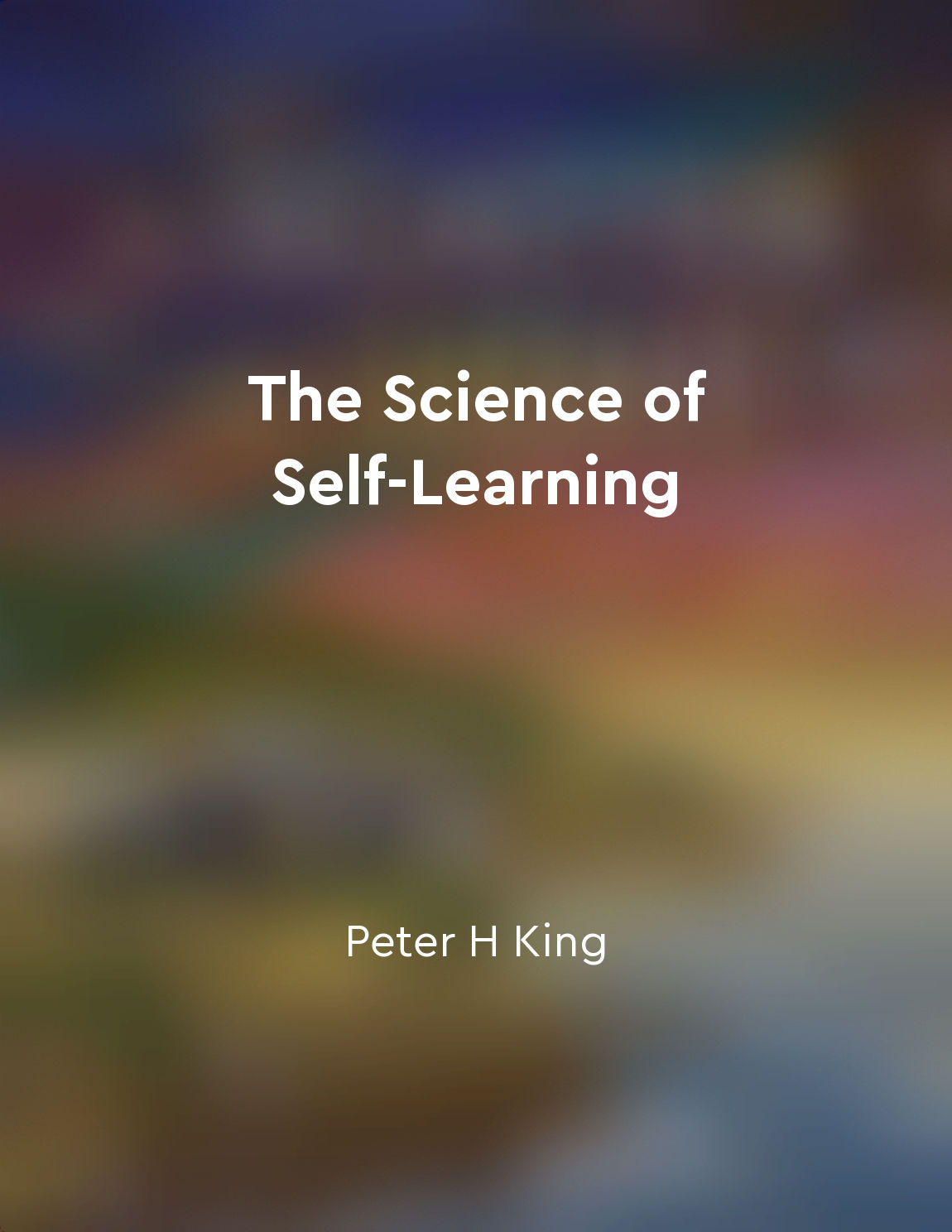Using spaced repetition helps you remember information longer from "summary" of Summary of "Ultralearning" by Scott H Young by Lea Schullery
By spacing out your study sessions, you can improve your ability to remember information over the long term. Spaced repetition involves reviewing material at increasing intervals of time, rather than cramming everything into one study session. When you space out your study sessions, you give your brain the opportunity to consolidate the information you've learned. This process helps to strengthen your memory and improve retention. Research has shown that spaced repetition is an effective method for enhancing memory retention. By reviewing material at regular intervals, you can reinforce your memory and increase your ability to recall information. Spaced repetition also helps to combat the forgetting curve, which shows that we tend to forget information quickly if we don't review it regularly. By using spaced repetition, you can combat this natural tendency and improve your ability to remember information over time. Spaced repetition is particularly useful when it comes to learning complex or challenging material. By spacing out your study sessions, you can break down difficult concepts into more manageable chunks. This approach allows you to focus on understanding and mastering each piece of information before moving on to the next. Spaced repetition also helps to prevent cognitive overload, which can occur when you try to learn too much information at once. By spacing out your study sessions, you give your brain the time it needs to process and retain new information.- You can strengthen your memory, increase retention, and improve your ability to recall information over time. Spaced repetition is a simple yet powerful technique that can enhance your learning experience and help you achieve your educational goals.
Similar Posts
Social interactions
Social interactions are a puzzle to me, a complex and sometimes bewildering puzzle. I perceive the world through patterns and l...
Speaking section evaluates fluency and coherence
In the Speaking section of the IELTS exam, candidates are assessed on their ability to communicate fluently and coherently. Flu...
Balancing humility with confidence in the learning process
The key to becoming a successful learner is finding the right balance between humility and confidence. Humility allows us to ac...
Useful resource for students aiming for high scores
This resource is designed to help students who are striving to achieve top scores in their CBSE Class 10 exams. It offers a com...

Using visualization techniques to enhance learning
Visualization techniques can be a powerful tool to enhance learning. When we visualize information, we create mental images tha...
Important facts and figures for competitive exams
The concept of important facts and figures for competitive exams is crucial for aspirants preparing for various competitive exa...
Every brain needs oxygen
The brain is a remarkable organ, capable of processing vast amounts of information in a split second. But like any other organ ...
Understand the science behind effective learning strategies
To truly grasp the essence of effective learning strategies, one must delve into the science that underpins them. By understand...
Customize learning strategies based on personal strengths and weaknesses
When embarking on a journey of ultralearning, it is essential to recognize that one size does not fit all when it comes to lear...
Learn to ask openended questions
As you embark on your journey to unlock the secrets of the human mind, one crucial skill that you must master is the art of ask...

